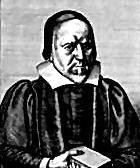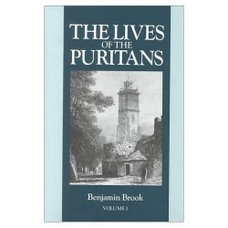Contemporaries 6
Benjamin Brook described Balsom as a 'pious and very courageous puritan divine'. He was born at Shepton Montague, Somerset, 5 or 6 miles south of Batcombe. He was educated at New Inn Hall, Oxford, from where he went to become an assistant to Richard Bernard. On Bernard's death he moved to Stoke (Trister?), a village in the same area.
After two years there with some success, owing to the civil war he was obliged to flee for safety to Wardour Castle [see pic], just over the border in Wiltshire. A short while later it was besieged by Royalists. At the solicitation of Colonel Ludlow, Balsom remained during the siege. Upon its capitulation, walking on the roof of the castle, Balsom overheard three soldiers talk about killing the minister. They spoke of him as some sort of wizard working against their cause. When the treaty was concluded, the enemy entered and Balsom was shut up in close confinement with a soldier who was hanged the next morning. At midnight the key of the prison was put into the hands of his intended assassins, who entered the room, and (removing their hats) stood at a distance, apparently doubtful and undetermined, but saying nothing. Balsom, recognising them and strongly suspecting their design, asked them their business. With great agitation, one confessed their plan but promised to do him no harm. They then urged him to make his escape, offering him all the assistance in their power. Suspecting they might have some other evil design, he refused. Even after they had convinced him of their integrity, he still refused, saying he would rather endure all that God would permit than let them hazard their lives. And so, to testify their esteem and their integrity, they conducted him into the fresh air and, having cleared his room, he departed.
A council was called the next morning to consider how to dispose of the prisoner. While they were debating this at least one man defended Baklsom and dissocaited himself from any plans to have him killed. Balsom was taken to Salisbury, where, that same night, another council was summoned. They sentenced him to be hanged. The sheriff of the county waited on him in prison, and, after much abusive language, told him to prepare for execution the next morning, assuring him, however, that provided he would ask the king's pardon and show himself loyal, he would not only be pardoned but might have almost any preferment he might want. Balsom baulked at the idea of seeking pardon when he was conscious of no offence. So he headed for the gibbet but just before the wicked deed was done a reprieve suddenly arrived from Sir Ralph Hopton. Balsom was taken to him in Winchester. There Sir William Ogle, the governor, told Balsom he would feed him on bread and water two or three days then have you hanged but being brought before Hopton, after some conversation about his espousing the parliamentary cause and the principles on which he had acted, he was committed to prison, with the charge, 'Keep this man safe; but use him well.' Balsom was eventually taken to Oxford. Despite imprisonment he preached twice daily and many came to him. After having been once or twice prohibited, he told them, that if they were weary of him and did not wish to be longer troubled with him, they might turn him out of doors whenever they liked. As long as he had a tongue to speak, and people to hear, he would not hold his peace.
At length, an exchange of prisoners led to his being set free and he became chaplain to the Earl of Essex. He later settled at Berwick (Bassett?), where he often preached and took forward the work of reformation. He was also involved to some extent with exorcisms, which brought him to public attention. On a visit to his home county in 1647 he suddenly took ill and died.
After two years there with some success, owing to the civil war he was obliged to flee for safety to Wardour Castle [see pic], just over the border in Wiltshire. A short while later it was besieged by Royalists. At the solicitation of Colonel Ludlow, Balsom remained during the siege. Upon its capitulation, walking on the roof of the castle, Balsom overheard three soldiers talk about killing the minister. They spoke of him as some sort of wizard working against their cause. When the treaty was concluded, the enemy entered and Balsom was shut up in close confinement with a soldier who was hanged the next morning. At midnight the key of the prison was put into the hands of his intended assassins, who entered the room, and (removing their hats) stood at a distance, apparently doubtful and undetermined, but saying nothing. Balsom, recognising them and strongly suspecting their design, asked them their business. With great agitation, one confessed their plan but promised to do him no harm. They then urged him to make his escape, offering him all the assistance in their power. Suspecting they might have some other evil design, he refused. Even after they had convinced him of their integrity, he still refused, saying he would rather endure all that God would permit than let them hazard their lives. And so, to testify their esteem and their integrity, they conducted him into the fresh air and, having cleared his room, he departed.
A council was called the next morning to consider how to dispose of the prisoner. While they were debating this at least one man defended Baklsom and dissocaited himself from any plans to have him killed. Balsom was taken to Salisbury, where, that same night, another council was summoned. They sentenced him to be hanged. The sheriff of the county waited on him in prison, and, after much abusive language, told him to prepare for execution the next morning, assuring him, however, that provided he would ask the king's pardon and show himself loyal, he would not only be pardoned but might have almost any preferment he might want. Balsom baulked at the idea of seeking pardon when he was conscious of no offence. So he headed for the gibbet but just before the wicked deed was done a reprieve suddenly arrived from Sir Ralph Hopton. Balsom was taken to him in Winchester. There Sir William Ogle, the governor, told Balsom he would feed him on bread and water two or three days then have you hanged but being brought before Hopton, after some conversation about his espousing the parliamentary cause and the principles on which he had acted, he was committed to prison, with the charge, 'Keep this man safe; but use him well.' Balsom was eventually taken to Oxford. Despite imprisonment he preached twice daily and many came to him. After having been once or twice prohibited, he told them, that if they were weary of him and did not wish to be longer troubled with him, they might turn him out of doors whenever they liked. As long as he had a tongue to speak, and people to hear, he would not hold his peace.
At length, an exchange of prisoners led to his being set free and he became chaplain to the Earl of Essex. He later settled at Berwick (Bassett?), where he often preached and took forward the work of reformation. He was also involved to some extent with exorcisms, which brought him to public attention. On a visit to his home county in 1647 he suddenly took ill and died.













No comments:
Post a Comment